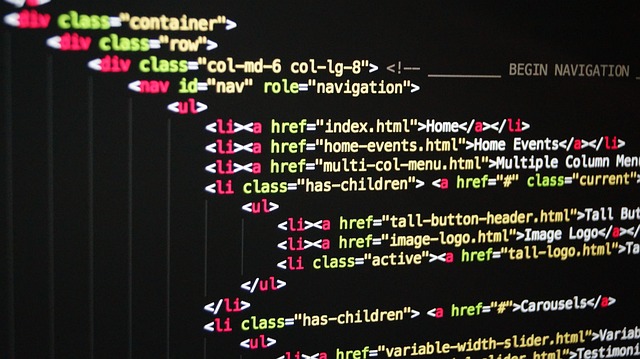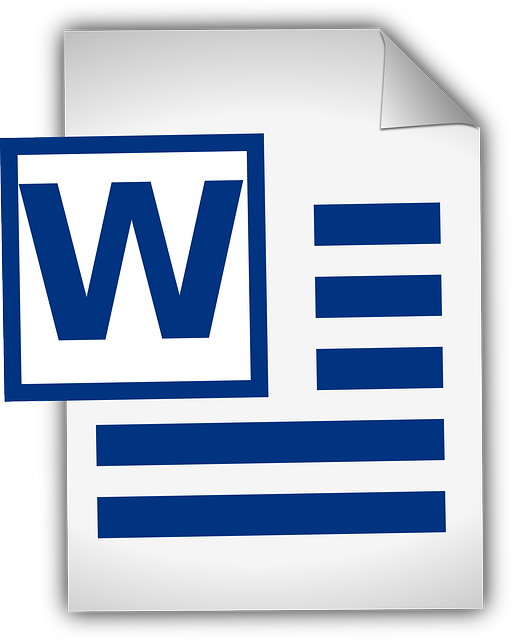In the dynamic landscape of UK Research and Development (R&D), effective communication is vital for global success. Professional translation services play a critical role in making complex R&D reports accessible worldwide, ensuring accurate scientific communication and international collaboration. These services navigate specialized terminology, cultural nuances, and legal considerations, facilitating the global spread of groundbreaking research. Choosing a reputable Language Service Provider (LSP) with expertise in scientific translations is key to maintaining data integrity and fostering productive multilingual teams. As technology advances, translation must adapt to meet diverse R&D needs, balancing machine translation's speed with human expertise for nuanced interpretations, ultimately enhancing the impact of UK's research contributions globally.
In today’s global research landscape, effective communication across languages is vital for the success of UK R&D initiatives. Accurate translation of technical reports is essential to ensure knowledge exchange, foster collaboration, and maintain scientific integrity. This article delves into the intricacies of translating R&D documents, exploring challenges from technical jargon to regulatory compliance. We examine best practices, the role of localization, case studies, and future trends in translation services specifically tailored for UK Research and Development.
- Understanding the Importance of Accurate Translation in UK R&D Reports
- The Challenges of Translating Technical Documentation
- Ensuring Quality: Choosing the Right Language Service Provider
- Best Practices for Effective Communication in Multilingual Research Teams
- Machine Translation vs. Human Translation: When to Use Each
- The Role of Localization in Scientific Publishing and Reporting
- Case Studies: Successful Translations in UK R&D Industries
- Legal and Compliance Considerations for Translated Documentation
- Future Trends in Language Services for UK Research and Development
Understanding the Importance of Accurate Translation in UK R&D Reports

In the dynamic field of UK Research and Development (R&D), clear and precise communication is paramount, especially when presenting findings through detailed reports. Accurate translation services for these documents play a vital role in ensuring that groundbreaking research reaches its intended audience globally. With R&D reports often containing complex scientific terminology and intricate methodologies, professional translation is essential to convey this information flawlessly across languages.
The impact of well-executed translation goes beyond simple word-for-word substitution. It involves adapting the content to cultural nuances while preserving technical accuracy. This meticulous process guarantees that researchers, investors, and stakeholders worldwide can access and understand the insights within UK R&D reports, fostering collaboration and innovation on an international scale.
The Challenges of Translating Technical Documentation

Translating technical documentation, especially within the realm of UK R&D reports, presents a unique set of challenges. These documents often contain highly specialized terminology and complex concepts that require precision and expertise to convey accurately in another language. The process demands not just linguistic proficiency but also a deep understanding of the subject matter to ensure the translated content is technically sound and consistent with the original.
One significant hurdle is maintaining the integrity of scientific and technical data during translation. Terms and phrases might have precise meanings within specific contexts, making it crucial to employ professional translators who are well-versed in both languages and the domain at hand. Additionally, cultural nuances play a vital role; what seems straightforward in one language could be expressed quite differently in another, requiring careful adaptation to avoid misinterpretation or confusion.
Ensuring Quality: Choosing the Right Language Service Provider

When it comes to translating UK R&D reports, ensuring quality is paramount. The accuracy and fluency of the translation directly impact understanding and decision-making based on the document’s content. To achieve this, selecting the right language service provider (LSP) is crucial. Look for LSPs that specialise in scientific and technical translations, as they possess the expertise and tools to handle complex terminology and jargon.
Reputation and experience are key indicators of a quality LSP. Check their client list and references to ensure they have successfully translated similar documents. Certification such as ISO 17105 for technical translation further assures the standard of their work. Additionally, consider providers that offer peer review processes and direct access to translators to guarantee the highest level of precision and consistency throughout your R&D report translations.
Best Practices for Effective Communication in Multilingual Research Teams

Effective communication is paramount in multilingual research teams, especially when dealing with UK R&D reports. To ensure seamless collaboration, consider implementing these best practices:
First and foremost, establish clear language guidelines for your team. Designate primary working languages, define terminology, and create consistent documentation templates. This practice reduces ambiguity and facilitates efficient information exchange. Additionally, invest in professional translation services for UK Research and Development documents to guarantee accuracy and cultural relevance. High-quality translations ensure that everyone understands the research findings, methodologies, and conclusions, fostering a cohesive and productive team environment.
Machine Translation vs. Human Translation: When to Use Each

In the realm of translation services for UK Research and Development (R&D) documents, choosing between machine translation (MT) and human translation (HT) is crucial for ensuring accuracy and preserving the integrity of scientific data. While MT offers speed and cost-effectiveness, it may not always capture the nuances and technical precision required in R&D reports. Machine translations can be useful for initial drafts or when a quick turnaround is essential, providing a basic understanding of the content.
On the other hand, human translation guarantees a more precise and contextually appropriate rendition. Human translators, especially those with expertise in scientific fields, can interpret complex terminology, cultural references, and subtle meanings, ensuring that the translated document aligns perfectly with the original. For UK R&D reports, where clarity and accuracy are paramount, human translation is often the preferred choice to maintain the quality and credibility of the research presented.
The Role of Localization in Scientific Publishing and Reporting

In the realm of scientific communication, localization plays a pivotal role, especially with UK R&D reports. These documents, brimming with intricate details and cutting-edge research, demand precise translation services to ensure global accessibility. Accurate translation goes beyond mere word-for-word substitution; it involves understanding the technical nuances, cultural context, and terminological consistency required in scientific publishing.
Localization ensures that R&D reports are not just translated but adapted for different audiences worldwide. It captures the essence of the research while adhering to local linguistic norms, making the information more relatable and credible. This is particularly crucial when sharing findings across languages, as it facilitates knowledge exchange, fosters collaboration, and promotes innovation on a global scale, enhancing the impact of UK’s research contributions through effective translation services for R&D documents.
Case Studies: Successful Translations in UK R&D Industries

In the dynamic landscape of UK R&D, effective communication is paramount. Case studies highlight successful translations of complex research documents, showcasing the crucial role of professional translation services. For instance, a leading pharmaceutical company faced the challenge of translating clinical trial reports from diverse European languages to ensure global compliance. The translation team not only mastered medical terminology but also cultural nuances, resulting in accurate and consistent documentation that facilitated regulatory approval worldwide.
Another compelling story involves an AI startup, which needed to localise its whitepapers and research papers for an international funding pitch. By engaging native language experts with a deep understanding of cutting-edge technology, the company successfully conveyed its innovative ideas, securing investment from global investors who valued clear, concise, and culturally appropriate scientific communication. These examples underscore the importance of high-quality translation services in enhancing the impact and accessibility of UK R&D documents across international borders.
Legal and Compliance Considerations for Translated Documentation

When translating UK R&D reports, legal and compliance considerations are paramount. These documents often contain sensitive information, intellectual property disclosures, and regulatory details that must be accurately conveyed in the target language to maintain legal validity and integrity. Engaging professional translation services with a deep understanding of both scientific terminology and local regulations is crucial. Such services can ensure the translated documentation adheres to all necessary standards and guidelines, protecting your research output and intellectual assets.
Additionally, proper translation includes navigating copyright laws and data protection rules, especially when dealing with proprietary information or personal data. Reputable translation providers will employ strategies like native language expertise, industry-specific training, and quality assurance processes to deliver precise, compliant translations. This is particularly important for companies operating within the UK and aiming to expand globally, ensuring their research reports are not only linguistically accurate but also legally sound across different jurisdictions.
Future Trends in Language Services for UK Research and Development

The future of language services within the UK’s Research and Development (R&D) sector is poised for significant evolution, driven by technological advancements and a growing demand for global collaboration. As R&D reports become increasingly diverse in format and content, translation services will need to adapt to meet these changing needs. Machine Translation (MT) technology has already made strides in providing quick, cost-effective solutions, but it’s human expertise that will remain indispensable for nuanced interpretations, especially within highly regulated industries.
With the UK’s reputation as a global hub for innovation, there is an increasing need for seamless communication between international researchers and stakeholders. Translation services for UK R&D documents must evolve to offer not just word-for-word translations but also cultural adaptation, ensuring that scientific discoveries resonate with diverse audiences worldwide. This includes staying abreast of industry jargon, localizing terminology, and providing context-aware interpretations that facilitate clear understanding across languages and disciplines.
In the dynamic realm of UK Research and Development (R&D), clear and precise communication is paramount. Effectively translating R&D reports not only facilitates global collaboration but also ensures that groundbreaking discoveries are accessible to a diverse audience. By understanding the challenges, adopting best practices, and leveraging the right language service providers, researchers can enhance the impact of their work. Translation services for UK R&D documents play a pivotal role in bridging linguistic gaps, fostering innovation, and propelling scientific progress on an international scale.
